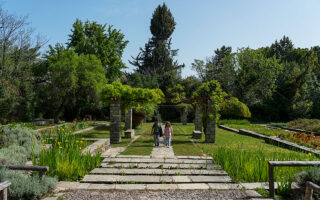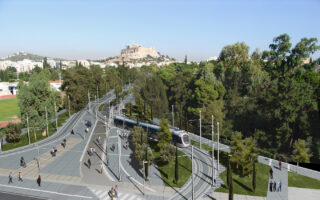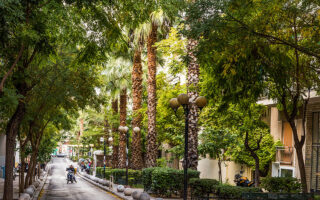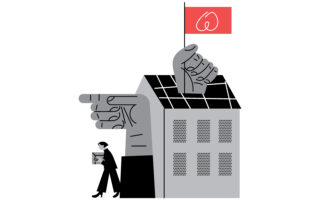Talk of the town: The changing face of Athens
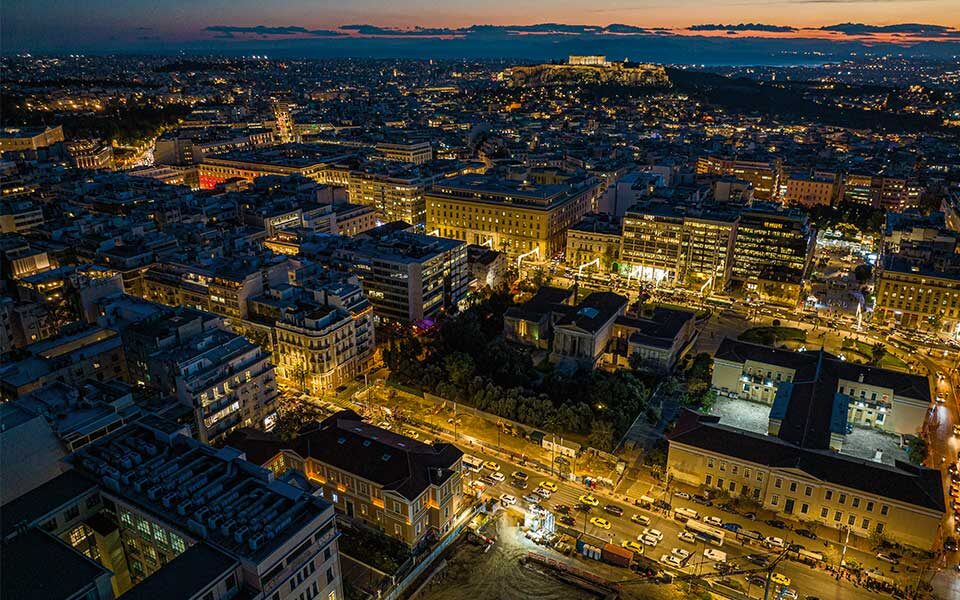
There are more of you now than ever. The number of visitors to Athens who prefer the city in the winter season is increasing dramatically year after year, but thankfully not to the point where they can no longer reap the benefits of their unmistakably wise decision. You are the fortunate ones who will not have to line up, will not suffer in the heat, and, most importantly, will see the city as it truly is: with more locals on the streets, squares, and shops than in the summer. That’s why we thought it would be interesting to tell you what’s on these people’s minds and what issues are on the Athenian agenda at the end of the year, a year in which Athens has been prominent in local news, sometimes for good reasons, sometimes not so much. So, let’s go find out!
New mayor in town
When compared to the mayor of the city’s actual authority, municipal elections in Athens elicit a disproportionate amount of attention; after all, important decisions are made by the government. As a result, it has become something of a running joke to say that a “good” mayor is one who “picks up the trash,” which may seem obvious but is not always the case. Outgoing mayor Kostas Bakoyannis hoped to overcome this image with a series of major, visionary projects. “The Grand Walk,” a series of pedestrian paths and bicycle lanes introduced in some of downtown Athens’ central thoroughfares, was the most prominent of these.
However, the project proved to be a complete failure, at least in terms of public perception, resulting in Bakoyannis’s defeat in last October’s local elections by newcomer Haris Doukas, a Professor of Energy Policy and Management backed by the center-left PASOK party. Doukas made a wise decision by playing the climate crisis card instead of competing with Bakoyannis’s large-scale construction plans. Athens had just experienced the hottest summer in its history, and the previous summer’s great fires had destroyed another large portion of Parnitha National Park. Doukas, thanks to his academic background in environmental and energy issues, was able to convince the people of Athens that he could plant 25,000 new trees and cool the city’s hottest neighborhoods by five degrees Celsius.
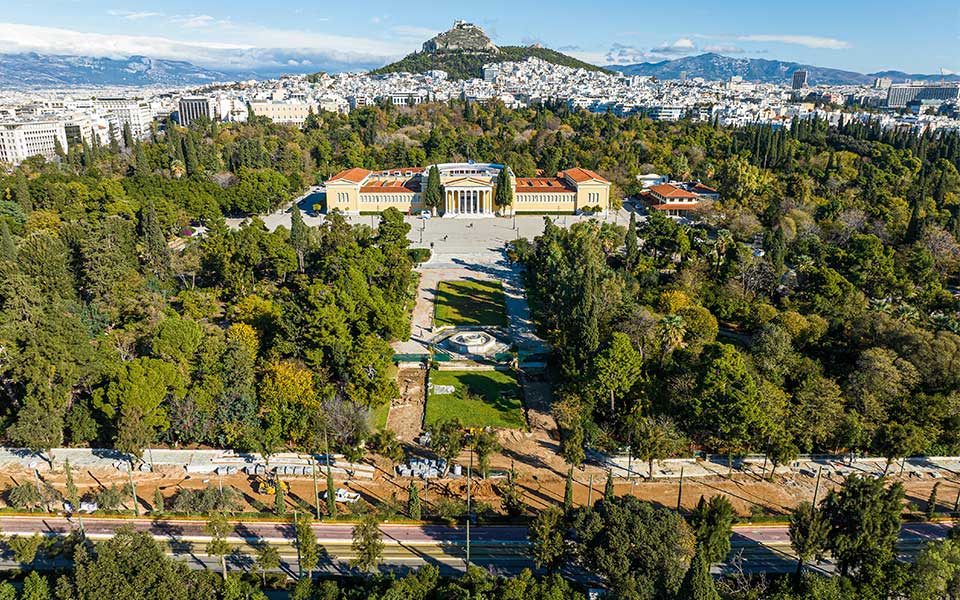
Vasilissis Olgas Avenue: for pedestrians or cars?
Prior to the pandemic, many Athenians had no idea where Vasilissis Olgas Avenue was. They quickly became familiar with it after the outgoing mayor decided to make it car-free as part of a program to increase public space available to pedestrians. Because it was rarely used, no one paid much attention to the removal of the Athenians’ favorite mode of transportation from the thoroughfare separating the Zappeion Gardens from the Temple of Zeus archaeological site.
When traffic returned to normal after the pandemic, however, drivers realized its utility as traffic jams in front of the Panathenaic Stadium became permanent. In the recent municipal elections, the future of the avenue was at the top of the agenda, and Athenians were treated to a rather paradoxical debate: the more environmentally conscious candidate advocated for its opening to traffic in order to decongest the situation, while the incumbent mayor stuck to his plan for its pedestrianization. He contended that it was a matter of principle and priorities, asking whether the city needs more space for cars or for pedestrians and cyclists. Meanwhile, during the works that had already begun in the summer, archaeological finds were made that will most probably have to be preserved in situ, so the newly elected mayor may be forced to back down.
To Airbnb or not to Airbnb?
Short-term rentals came to Athens at just the right time, in the mid-2010s, at the height of the Greek economic crisis, and they proved to be the saving grace for thousands of struggling households, for whom the most popular rental platform proved to be a valuable source of extra income or, in many cases, their only means of financial survival. But, just as the worst seemed to be over, the rest of the iceberg emerged: entire neighborhoods, such as Koukaki in the shadow of the Acropolis, had become overrun with tourists dragging their luggage from one apartment building to the next. In the space of just a few years, rents went through the roof, and residents were left wondering how long they would be able to survive in these conditions. According to a recent Grant Thornton study, the turnover generated by short-term rentals accounts for 14.41% of Greek tourism. As a result, when the phenomenon spread to the majority of Athens’ neighborhoods, the government, under pressure from hoteliers and an increasingly concerned public, announced a rethinking of the institutional framework, which would include restrictions on the types of residences that could be rented and a cap on the number of rental days per year.
Furthermore, owners of one or two properties will have a different tax status than hosts or companies with more than three listed properties, with the latter being subject to an accommodation fee in the same manner as hotels. Until all this becomes law, there is widespread mistrust, because tourism is regarded as the golden goose of the Greek economy, and you don’t mess with the golden goose.

Metro vs trees: the new clash
When Athens became one large construction site in the 1990s to enable the creation of the two new metro lines (work on the original overground line began in the 19th century), no one paid attention to the inevitable sacrifices that such an ambitious infrastructure project entailed. Today, however, with construction for Line 4 about to begin, the removal of a few dozen trees in squares and other public spaces has sparked protests among local communities and has divided experts. The sacrifice, so the counterargument goes, is worth it: in a few years, the most environmentally friendly mode of transportation will gain 15 new stations.
However, Athens in 1990 bears no resemblance to Athens in 2023. In four decades, the Greek capital has lost more than one-third of its peri-urban forests, causing irreparable harm to the city’s already troubled environmental profile, boasting as it does Europe’s lowest ratio of green space per resident. According to the company responsible for the construction of the new line, the trees will be transplanted, but media research has shown that few transplanted trees survive. And as is usually the case, after the various works are completed, the trees will have been replaced by impersonal squares with merely decorative greenery. The government has responded by announcing architectural tenders for the main squares through which the new line will pass. Welcome to the era in which every tree matters.
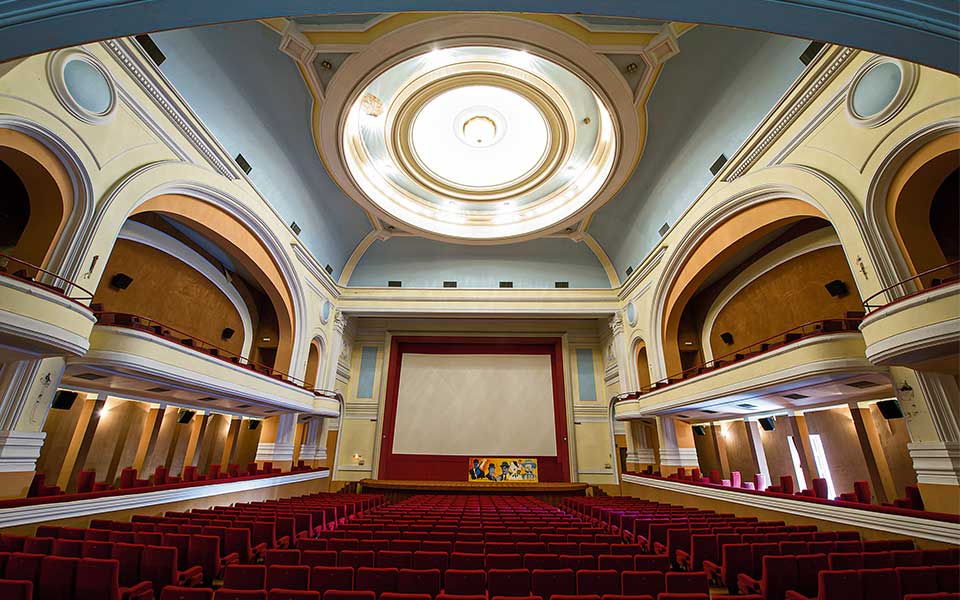
Images from the near future: a city without cinemas
Athens was once one of the European capitals with the highest ratio of movie theaters per capita. This was largely due to the flourishing of popular Greek cinema in the 1950s and 1960s, as well as the late arrival of television sets in Athenian homes (not until the early 1970s). Every neighborhood in the city had its own majestic and prestigious “temples” of popular culture, and the city’s hundreds of open-air cinemas were open from Easter to autumn.
Almost 90% of these cinemas have since closed, been demolished, or been repurposed. The impact has been far greater in the center of Athens than in the suburbs. Classic and beloved theaters such as “Attikon” and “Apollon” on Stadiou Street, as well as “Embassy” in Kolonaki, have closed in the last 12 years, and ominous rumors circulate about the few remaining cinemas that are still open. The city’s cinephile community banded together last winter to protest the announced closures of the “Ideal” and “Astor” movie theaters, which are housed in buildings that will most likely be converted into hotels. Many consider the phenomenon to be almost inevitable in the age of digital media and streaming, but to many Athenians, it is yet another symptom of the changing character of their city center.
The more pluralistic model of previous decades is being replaced by an extensive zone set aside primarily for tourism purposes, aimed primarily at visitors. Even official voices are now highlighting the risk, but for the time being, we are still in the process of establishing the facts.
This article appeared in Greece Is (www.greece-is.com), a Kathimerini publishing initiative.


